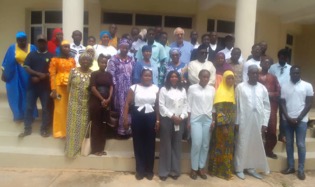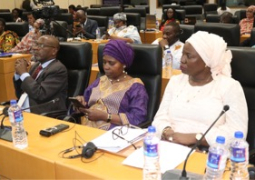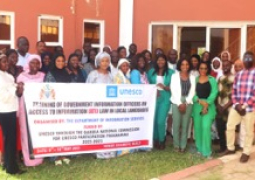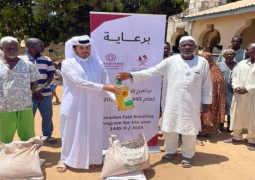
The training was organised by the Food and Agriculture Organization (FAO) supported under the Green Climate Fund Climate Resilient Fishery Initiative for Livelihood Improvement Project (PROREFISH-Gambia).
The project is currently devising means to establish a solid and functioning foundation for sustainable provision and foster access to good quality seed (fingerlings) and feed, transfer of technical and technological expertise and managerial and other skills for better production and a better life.
At the closing ceremony, Moshibudi Rampedi, FAO country representative, recalled that over the past four weeks, selected participants have learnt important areas as the country is set to create a brighter future for the aquaculture sector.
The training, she added, focused on aquaculture and climate change issues as it relates to addressing both adaptation and mitigation strategies. This, she believed, would help and ensure resilience in the face of environmental challenges.
She highlighted that during the training, participants learnt about healthy aquaculture production systems, species selections which is crucial for optimising production considering local conditions.
Anna Mbenga Cham, Director of Fisheries under the Ministry of Fisheries, Water Resources and National Assembly Matters, revealed that aquaculture is the fastest growing food producing sector globally and is also playing a significant role in improving the nutritional standards of many low-income earners in the world.
She acknowledged that the livelihoods and food security of many citizens heavily depend on fisheries making it imperative to take a proactive measure in reducing the pressure on fisheries through aquaculture development.
The knowledge gained, she added, would not only contribute in reducing the pressure on the fishery sector, but would also greatly help in developing the trainees’ skills and competitiveness in multi-culture techniques especially in rice-fish farming and vegetable-fish farming.
In an interview with Ameth Tjan Jobe, a participant, he said they learnt a lot during the training especially on how to produce feed for the fish and how to take care of the fish, how to feed them and monitor their growth and health.
“The training is very beneficial to all, particularly to the participants from Agriculture, including NARI. For Fisheries staff, the knowledge gained will be used on their daily and directly in their routine activities.”





